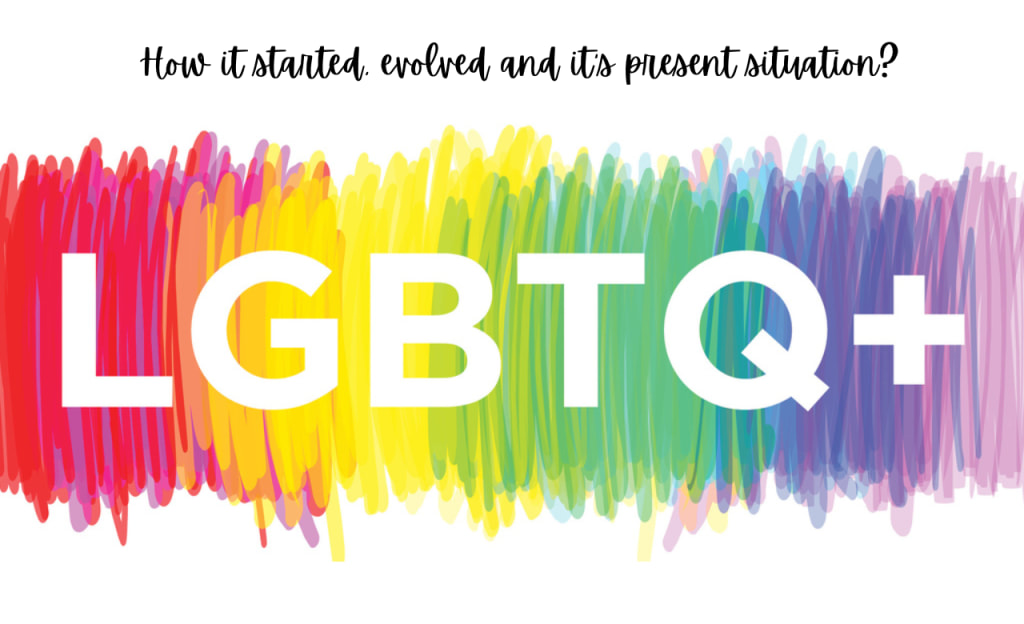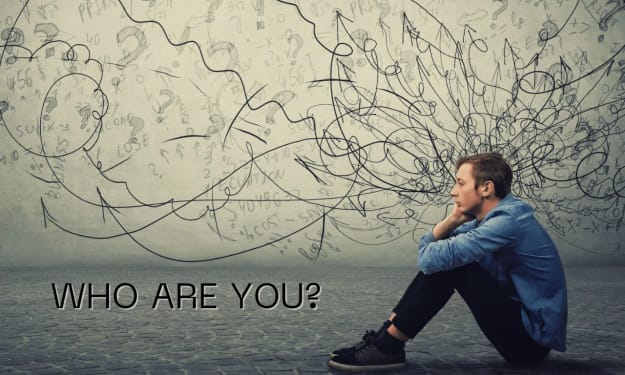The Evolution of LGBTQ+ History and the Quest for Equality
How it started, evolved and it's present situation?

The history of LGBTQ+ (lesbian, gay, bisexual, transgender, and queer/questioning) communities is a rich tapestry spanning centuries. While the understanding and acceptance of diverse sexual orientations and gender identities have evolved, it is important to note that the concept of LGBTQ+ identities is not a recent phenomenon but has deep historical roots.
Ancient civilizations, such as the Mesopotamians, Egyptians, Greeks, and Romans, had varied attitudes towards same-sex relationships and non-binary gender identities. Some cultures celebrated same-sex love and recognized third-gender categories, while others held more restrictive views. For example, ancient Greece is often cited for its acceptance of same-sex relationships, particularly between adult men and adolescent boys, which was seen as a form of mentorship and affection.
The rise of Christianity in the medieval period brought significant changes to societal attitudes towards non-heteronormative behaviors. The influence of religious teachings led to the stigmatization and persecution of individuals who engaged in same-sex relationships or expressed non-conforming gender identities. Laws were enacted, and punishments were imposed on those considered deviant from prevailing norms.
It was not until the late 19th and early 20th centuries that the foundations of modern LGBTQ+ activism began to emerge. The early LGBTQ+ rights movement can be traced back to movements against the criminalization of homosexuality, such as Germany's Scientific-Humanitarian Committee founded in 1897 by Magnus Hirschfeld. These efforts sought to challenge discriminatory laws and provide a voice for LGBTQ+ individuals.
The 20th century saw significant milestones in LGBTQ+ history. The early 1900s witnessed the emergence of LGBTQ+ social and cultural spaces, such as Harlem's "gay-friendly" establishments during the Harlem Renaissance. The 1960s and 1970s marked a turning point with the birth of the modern LGBTQ+ rights movement. The Stonewall Inn uprising in 1969, sparked by the resistance of LGBTQ+ individuals against police harassment, galvanized the community and led to a wave of protests and activism.
Throughout the following decades, LGBTQ+ activism gained momentum, advocating for legal rights, anti-discrimination protections, and social acceptance. The removal of homosexuality from the American Psychiatric Association's list of mental disorders in 1973 (and subsequent revisions in other countries) marked a significant step forward in the recognition of LGBTQ+ identities.
The fight for LGBTQ+ rights encompassed various fronts, including legal battles, public awareness campaigns, and the establishment of LGBTQ+ organizations. Major milestones include the decriminalization of homosexuality in numerous countries, the establishment of LGBTQ+ pride parades and events worldwide, and the gradual recognition of same-sex marriage and adoption rights in several countries.
The 21st century has witnessed further progress in LGBTQ+ rights, with an increasing focus on transgender and non-binary rights, as well as intersectionality within the LGBTQ+ community. The visibility of LGBTQ+ individuals in media, politics, and other fields has played a crucial role in challenging stereotypes and fostering acceptance.
It is important to acknowledge that despite the significant progress made, LGBTQ+ individuals still face challenges, discrimination, and varying levels of legal protection worldwide. Ongoing efforts continue to advocate for full equality, inclusive education, healthcare access, and societal acceptance, as the history of LGBTQ+ communities evolves toward a more inclusive and equitable future.
In recent years, the visibility of LGBTQ+ individuals in popular culture has increased, with more representation in film, television, literature, and music. LGBTQ+ stories and voices are being amplified, challenging stereotypes and offering diverse narratives that celebrate the richness of queer experiences.
The advent of social media and online platforms has provided new avenues for LGBTQ+ communities to connect, organize, and raise awareness. Online activism, hashtags, and viral campaigns have amplified LGBTQ+ voices, facilitated global solidarity, and brought attention to important issues, including the ongoing fight for LGBTQ+ rights in different parts of the world.
As society becomes more inclusive, there is a growing recognition of the importance of LGBTQ+ rights and the value of diversity. Educational institutions, workplaces, and public spaces are working to create safer and more inclusive environments for LGBTQ+ individuals. Allies and advocates continue to support the cause, pushing for greater legal protections and social acceptance.
The history of LGBTQ+ is a testament to the resilience and strength of individuals who have fought for their rights and the rights of future generations. While challenges remain, the ongoing struggle for equality and acceptance continues to shape a more inclusive and compassionate world for LGBTQ+ individuals everywhere.
About the Creator
eda biljik
hey,
I'm Eda. I'll provide you with top trending hot topics in the world. Everyone has the right to know what's happening arround the globe. And for this my articles will help you in this matter benefiting you with increasing your IQ level.






Comments
There are no comments for this story
Be the first to respond and start the conversation.